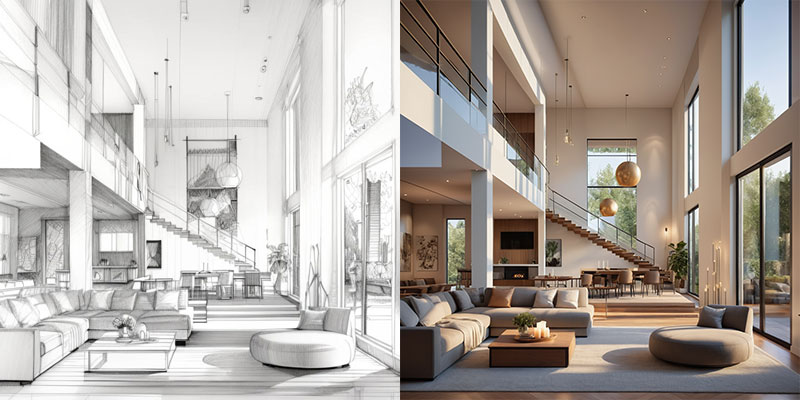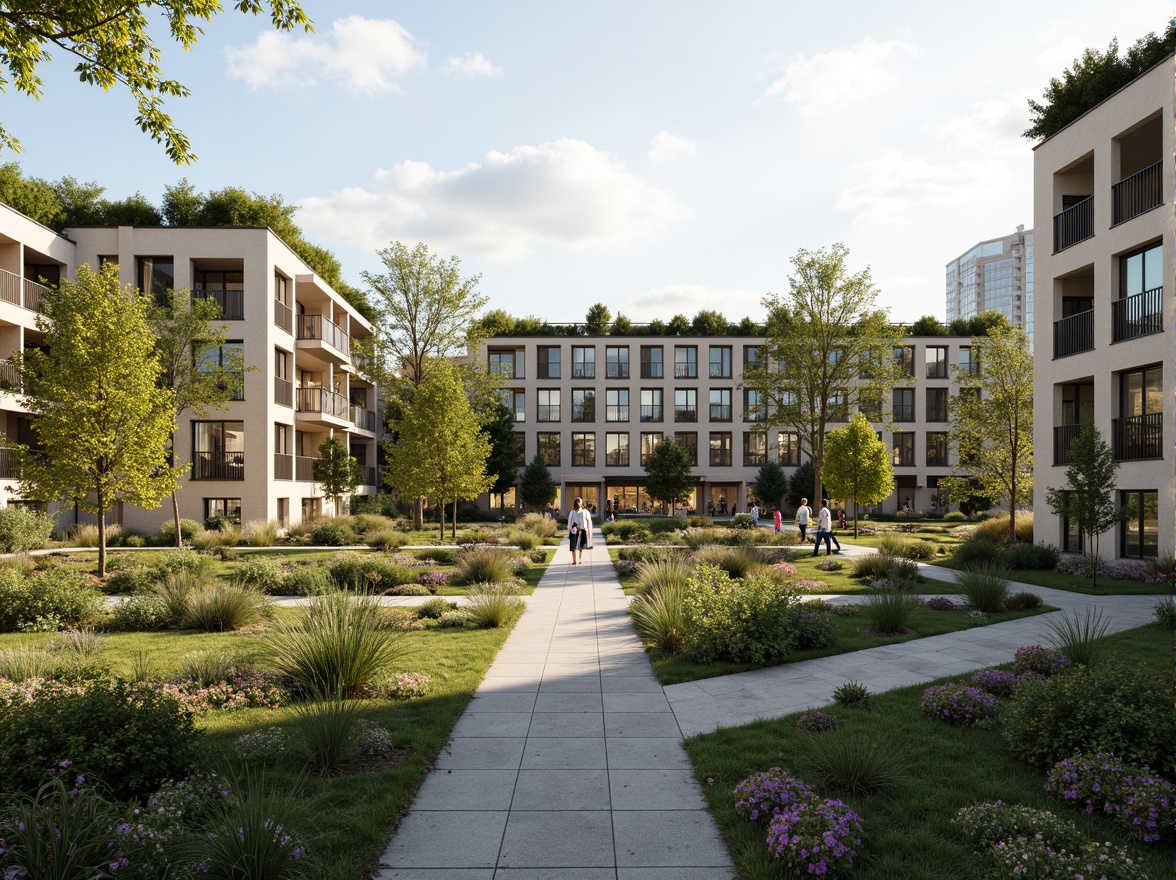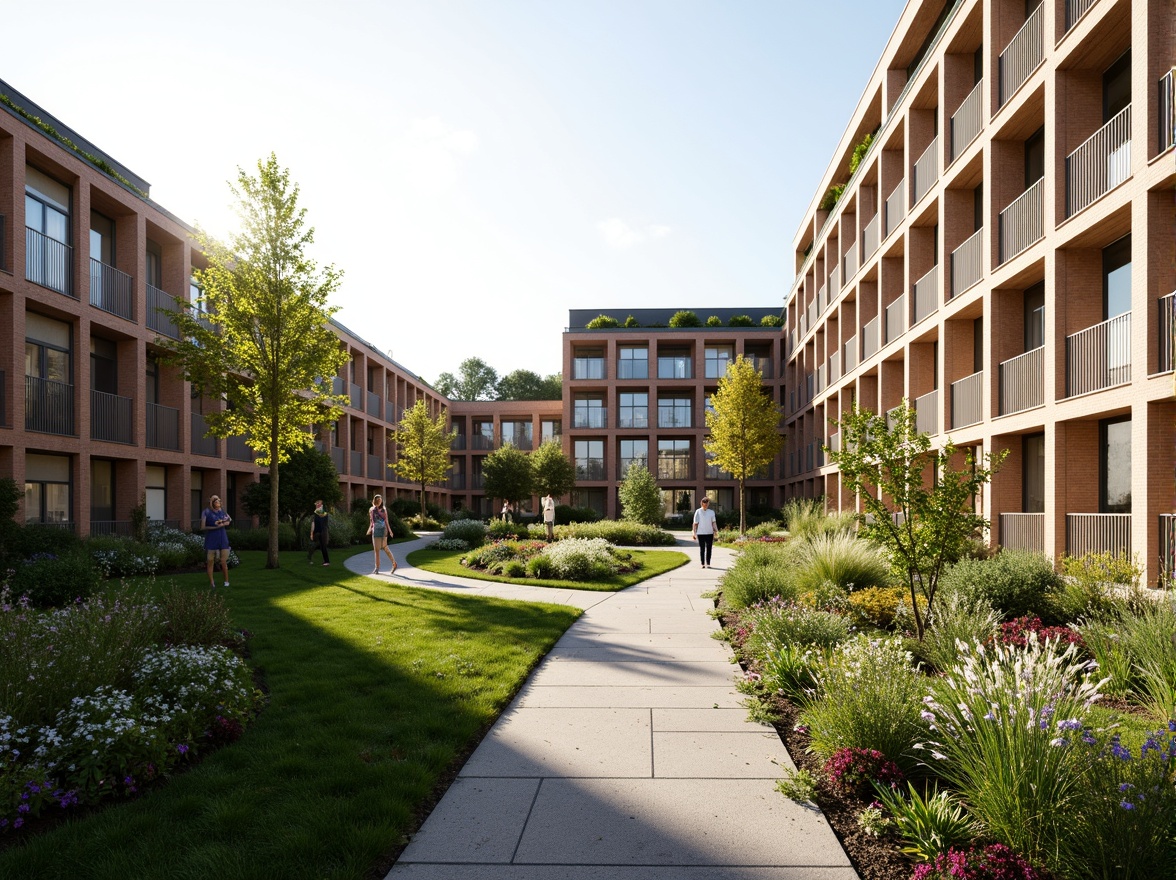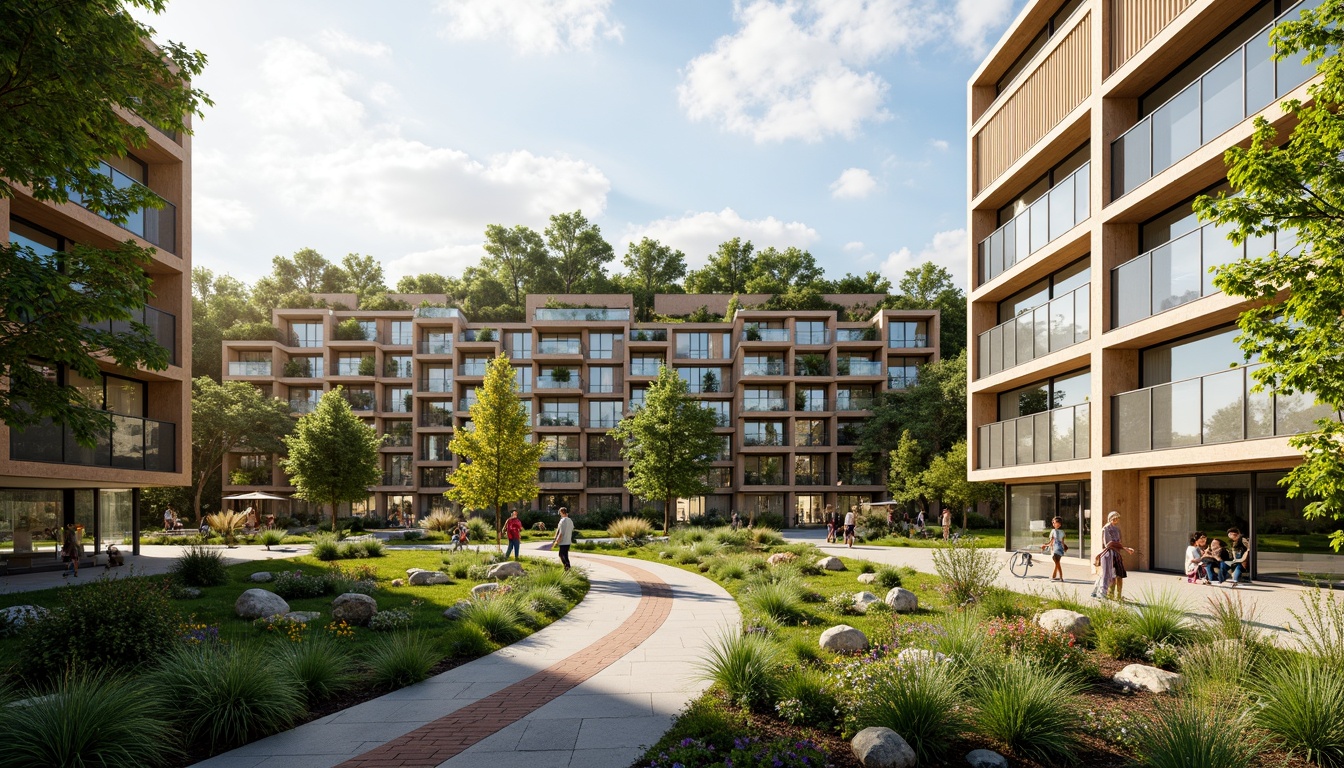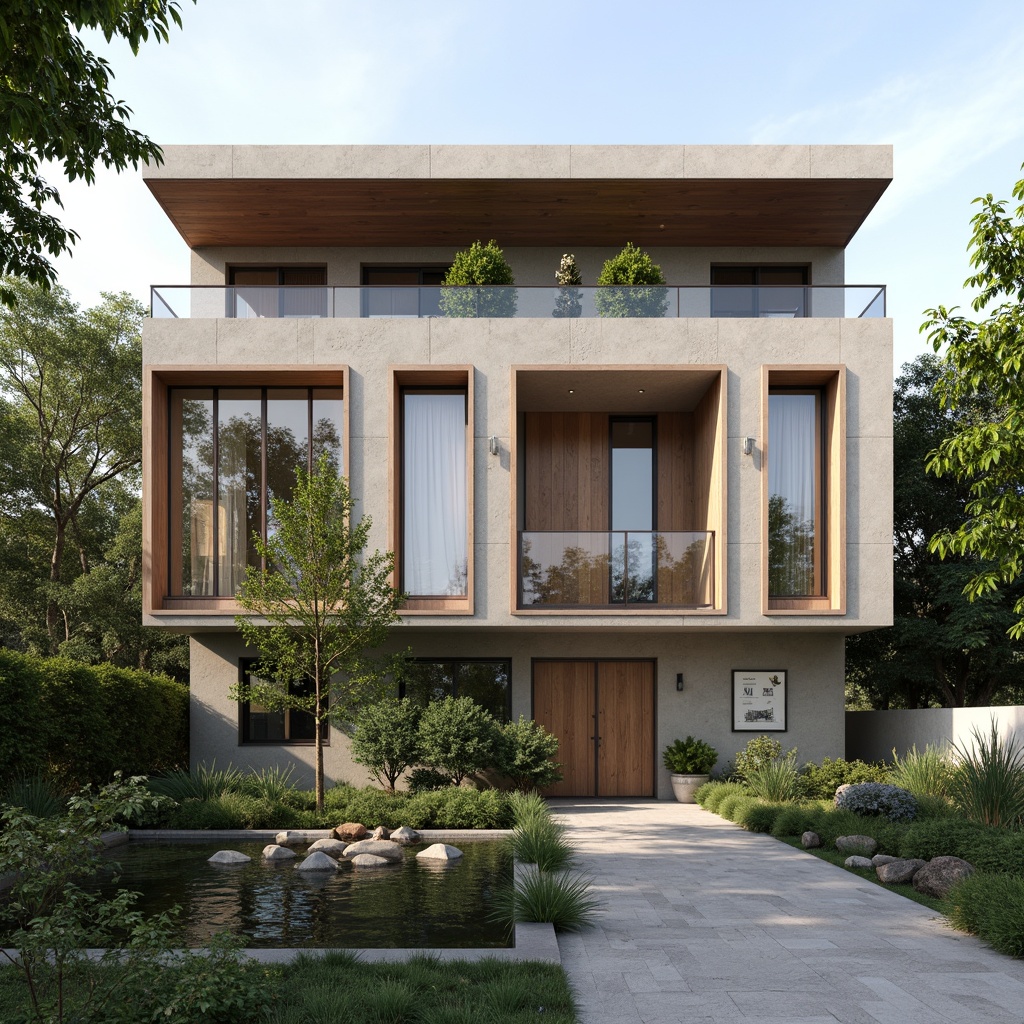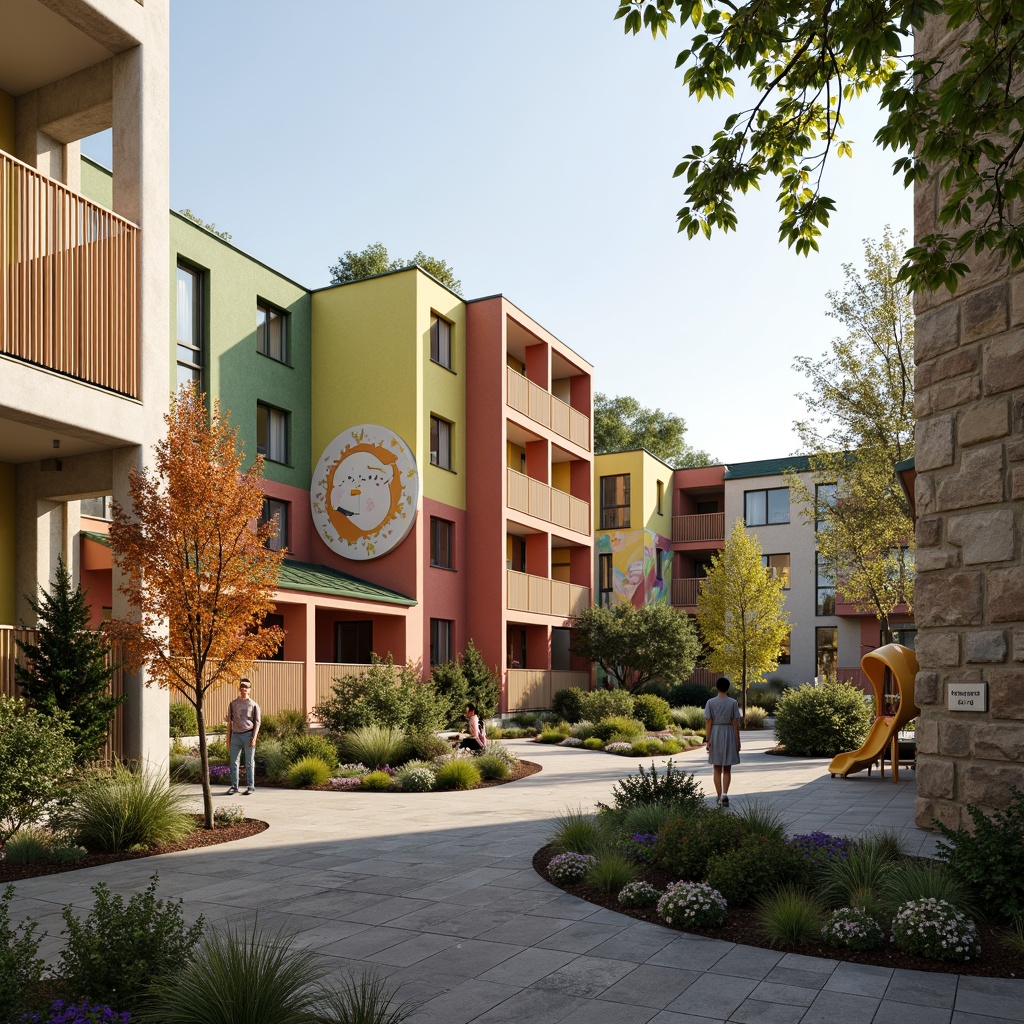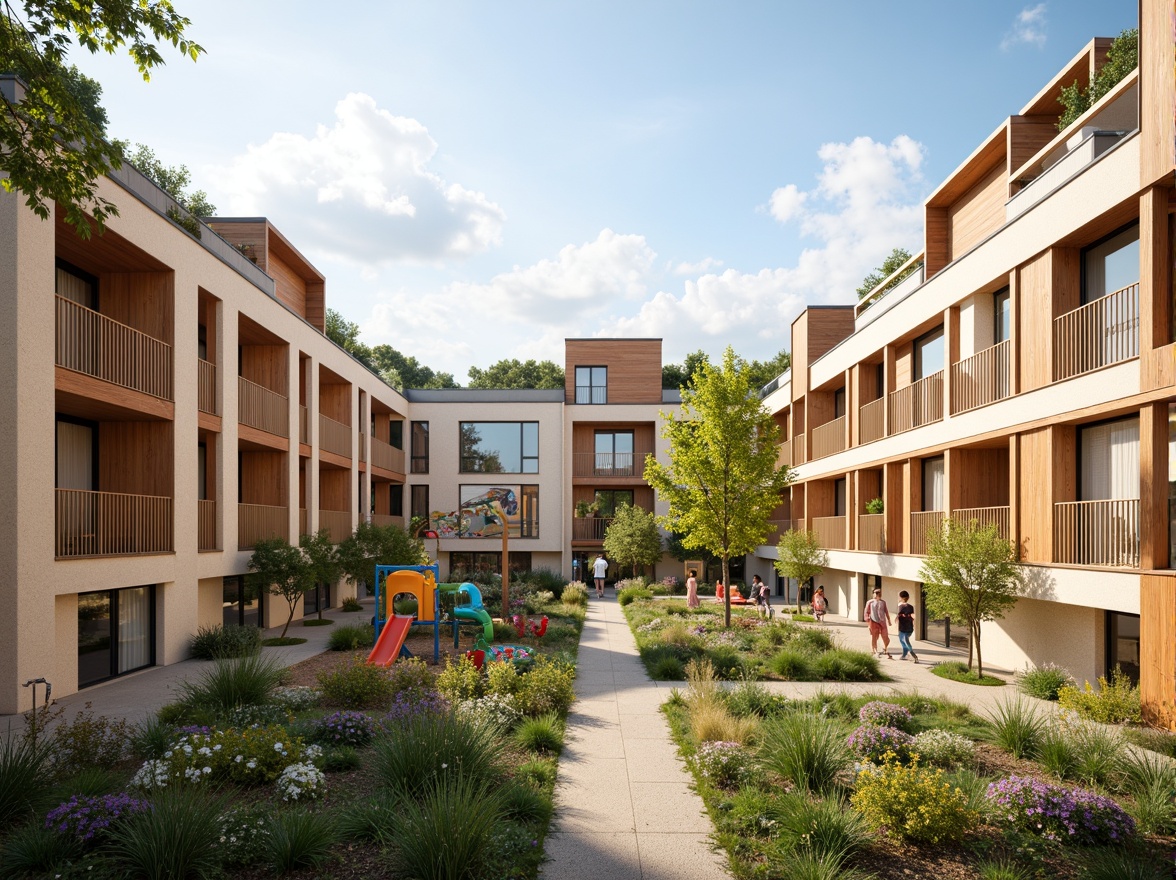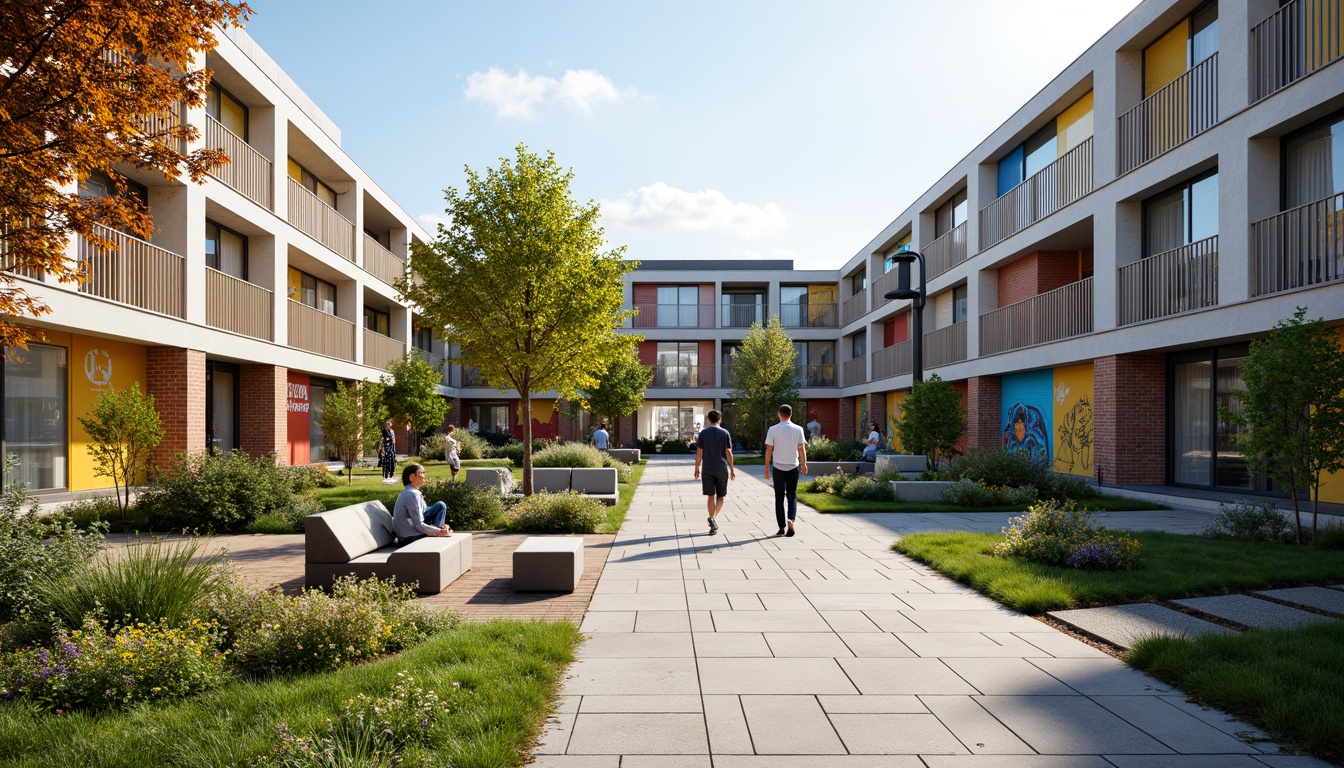دعو الأصدقاء واحصل على عملات مجانية لكم جميعًا
Institute Social Housing Architecture Design Ideas
The Institute Social Housing architecture style combines functionality with aesthetic appeal, creating living spaces that foster community and sustainability. This design approach utilizes materials such as sandstone and features a color palette dominated by blue violet tones. By integrating with the wetland environment, these housing designs promote ecological balance while providing comfortable homes for residents. Explore these inspiring ideas to elevate your architectural projects.
Landscape Integration in Institute Social Housing Design
Landscape integration is crucial in Institute Social Housing design. This approach ensures that buildings harmoniously blend with their natural surroundings, enhancing both aesthetic appeal and environmental sustainability. By considering the wetland context, architects can create serene living spaces that promote biodiversity. Thoughtful landscape planning not only improves the visual impact but also supports the overall well-being of the community.
Prompt: Vibrant institute social housing, lush green roofs, vertical gardens, community playgrounds, outdoor recreational spaces, walking trails, natural stone pathways, modern minimalist architecture, large windows, sliding glass doors, warm sunny day, soft diffused lighting, shallow depth of field, 3/4 composition, panoramic view, realistic textures, ambient occlusion, integrated landscape design, eco-friendly materials, sustainable energy solutions, rainwater harvesting systems, green walls, community gardens, public art installations, vibrant colorful murals.
Prompt: Vibrant institute social housing, lush green roofs, vertical gardens, community playgrounds, outdoor recreational spaces, walking trails, natural stone pathways, modern minimalist architecture, large windows, sliding glass doors, warm sunny day, soft diffused lighting, shallow depth of field, 3/4 composition, panoramic view, realistic textures, ambient occlusion, integrated landscape design, eco-friendly materials, sustainable energy solutions, rainwater harvesting systems, green walls, community gardens, public art installations, vibrant colorful murals.
Prompt: Vibrant institute social housing, lush green roofs, vertical gardens, community playgrounds, outdoor recreational spaces, walking trails, natural stone pathways, modern minimalist architecture, large windows, sliding glass doors, warm sunny day, soft diffused lighting, shallow depth of field, 3/4 composition, panoramic view, realistic textures, ambient occlusion, integrated landscape design, eco-friendly materials, sustainable energy solutions, rainwater harvesting systems, green walls, community gardens, public art installations, vibrant colorful murals.
Sustainable Materials for Institute Social Housing
Using sustainable materials is a hallmark of the Institute Social Housing design. Sandstone, for instance, provides durability and a natural aesthetic while minimizing the environmental footprint. This commitment to sustainability extends to all aspects of construction, ensuring that the housing not only meets the needs of residents but also respects the ecological integrity of the surrounding wetland. Sustainable materials contribute to the longevity and resilience of the buildings.
Prompt: Eco-friendly institute social housing, recycled metal fa\u00e7ade, low-carbon concrete walls, solar panel roofs, green roofs, rainwater harvesting systems, natural ventilation, large windows, minimal ornamentation, simple color scheme, earthy tones, bamboo flooring, reclaimed wood accents, energy-efficient appliances, LED lighting, minimalist interior design, open-plan living spaces, communal gardens, urban agriculture, vertical farming, community engagement areas, educational signage, interactive exhibits, sustainable lifestyle promotion.
Innovative Facade Design in Institute Social Housing
Facade design plays an essential role in defining the character of Institute Social Housing. Utilizing a blue violet color palette, facades can create a striking visual identity while reflecting the environment's natural beauty. Innovative design elements can also enhance energy efficiency, providing residents with comfortable and sustainable living spaces. A well-designed facade invites interaction and engagement within the community.
Color Palette in Institute Social Housing Architecture
The color palette in Institute Social Housing architecture significantly influences the overall atmosphere of the community. Blue violet hues evoke a sense of tranquility and harmony, making the living spaces more inviting. This thoughtful choice of colors can enhance mental well-being and foster a sense of belonging among residents. A well-considered color scheme contributes to the aesthetic coherence of the entire neighborhood.
Prompt: Vibrant social housing complex, warm earthy tones, soft pastel colors, natural stone fa\u00e7ades, wooden accents, green roofs, communal gardens, playful children's playgrounds, educational murals, modern minimalist architecture, large windows, sliding glass doors, cozy interior lighting, shallow depth of field, 3/4 composition, panoramic view, realistic textures, ambient occlusion.
Prompt: Vibrant social housing complex, warm earthy tones, soft pastel colors, natural stone fa\u00e7ades, wooden accents, green roofs, communal gardens, playful children's playgrounds, educational murals, modern minimalist architecture, large windows, sliding glass doors, cozy interior lighting, shallow depth of field, 3/4 composition, panoramic view, realistic textures, ambient occlusion.
Creating Community Spaces in Institute Social Housing
Community spaces are vital in Institute Social Housing, promoting social interaction and cohesion among residents. These shared areas can include parks, gardens, and recreational facilities that encourage a sense of belonging. By designing multifunctional spaces, architects can cater to diverse community needs, making the housing environment more vibrant and engaging. The incorporation of community spaces is essential for building a supportive and connected neighborhood.
Prompt: Vibrant community center, modern social housing, diverse cultural backgrounds, inclusive public spaces, lush green roofs, communal gardens, outdoor recreational areas, playground equipment, seating benches, educational murals, natural stone walkways, brick buildings, large windows, glass doors, warm sunny day, soft diffused lighting, shallow depth of field, 3/4 composition, panoramic view, realistic textures, ambient occlusion.
Conclusion
In conclusion, the Institute Social Housing design style offers numerous advantages, including enhanced community integration and sustainability. By utilizing materials like sandstone and thoughtful color palettes, architects can create beautiful and functional spaces that respect the environment. The inclusion of community spaces fosters social interaction, making these designs ideal for modern living. Embracing these design principles can lead to thriving neighborhoods that prioritize both ecological and social well-being.
Want to quickly try institute design?
Let PromeAI help you quickly implement your designs!
Get Started For Free
Other related design ideas

Institute Social Housing Architecture Design Ideas

Institute Social Housing Architecture Design Ideas

Institute Social Housing Architecture Design Ideas

Institute Social Housing Architecture Design Ideas

Institute Social Housing Architecture Design Ideas

Institute Social Housing Architecture Design Ideas

